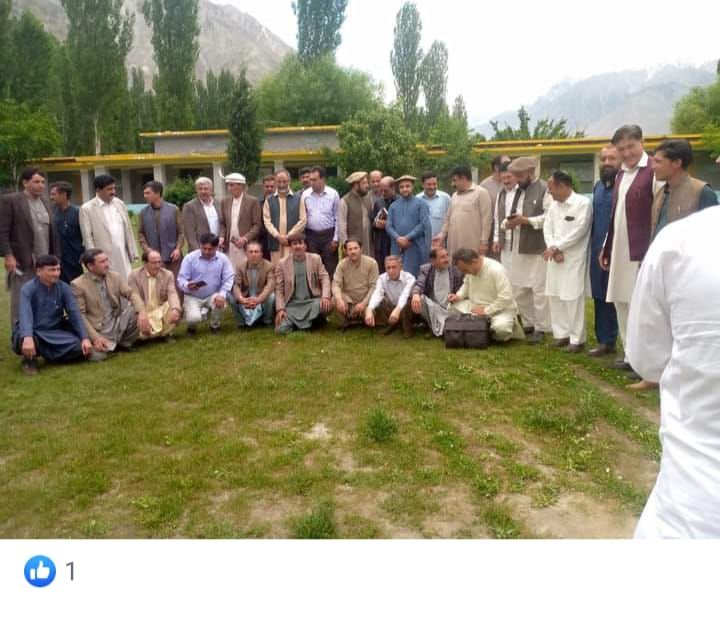The Importance of Farewell Parties After Service Farewell parties mark the end of an era and the beginning of new opportunities for individuals transitioning from one phase of life or career to another. Whether in professional settings, educational institutions, or community groups, farewell events offer a unique blend of reflection, recognition, and closure that can significantly impact the people involved. This article explores the reasons why farewell parties are important after any service, focusing on their roles in providing closure, celebrating achievements, strengthening relationships, fostering positive organizational culture, enhancing morale, and inspiring future endeavors.
1. Providing Closure
Farewell parties play a crucial role in providing emotional closure for both the departing individual and their colleagues. They serve as a formal and communal acknowledgment of the transition, allowing everyone involved to come to terms with the change. In the absence of a farewell event, transitions can feel abrupt or incomplete, leaving both the individual and their peers with unresolved emotions.
Closure is essential for psychological well-being, as it allows individuals to process their experiences and move forward without lingering feelings of regret or unfinished business. A structured farewell provides a platform for people to express gratitude, share memories, and bid a proper goodbye, which can be therapeutic and help in adjusting to the new reality .

2. Celebrating Achievements
Farewell parties are an excellent opportunity to celebrate the achievements of the person leaving. Acknowledging their contributions publicly not only honors the individual but also sets a positive example for others. This celebration of success serves as recognition for the hard work and dedication the person has put into their role, boosting their self-esteem and leaving them with positive memories of their tenure.
Recognition and appreciation are key motivators in any setting. When achievements are celebrated in farewell events, it validates the efforts of the departing individual, reinforcing the value of their work. This recognition can be particularly important in professional environments where day-to-day efforts may not always receive the spotlight. Highlighting these successes can inspire others within the organization to strive for excellence and make a meaningful impact in their roles .
3. Strengthening Relationships
Farewell parties provide a valuable space for strengthening relationships. They bring people together, allowing for informal interactions that may not occur during regular workdays. These events offer an opportunity to express appreciation, share personal anecdotes, and connect on a deeper level beyond professional or academic interactions.
By fostering a sense of camaraderie and mutual respect, farewell events can strengthen bonds and leave a lasting impression. Colleagues, mentors, and friends can use this time to express their support, offer well wishes, and sometimes even maintain connections beyond the service period. In some cases, these events may serve as a foundation for lifelong friendships or professional networks that continue to be valuable in the future .

4. Fostering Positive Organizational Culture
Farewell parties are integral to fostering a positive organizational culture. They reinforce the idea that individuals are valued not just for their output but as people who contribute to the social fabric of the organization. A culture that emphasizes the importance of farewells sends a message that every member’s journey is acknowledged and celebrated.
Organizations that invest in farewell events demonstrate a commitment to their employees’ well-being and satisfaction. This practice can enhance the overall morale and create an environment where people feel appreciated and recognized. Furthermore, it encourages a culture of gratitude and celebration, which can enhance team dynamics and lead to a more engaged and motivated workforce .
5. Enhancing Morale and Motivation
Hosting farewell parties can significantly enhance morale and motivation within a group or organization. These events provide a platform for positive reinforcement, highlighting the collective achievements of the team as they celebrate an individual’s contributions. When employees see their colleagues being recognized and celebrated, it can boost their morale and encourage them to work towards similar recognition.
Farewell parties also help mitigate the sadness of losing a valued member by focusing on the positive aspects of their departure, such as the new opportunities that lie ahead. This optimistic approach can prevent feelings of loss from negatively impacting the team’s morale. It also sets a precedent for how transitions are handled, demonstrating that change, while sometimes challenging, is a natural and celebrated part of growth .

6. Inspiring Future Endeavors
Lastly, farewell parties can inspire both the departing individual and those who remain. For the person leaving, it serves as a reminder of the impact they have made, which can be a powerful motivator as they embark on their next journey. Hearing stories of their accomplishments and the positive influence they have had can reinforce their self-worth and confidence.
For those remaining, farewell parties serve as a source of inspiration. Witnessing the celebration of a colleague’s journey can motivate others to pursue their own goals and strive for excellence. It creates a forward-looking atmosphere, where individuals feel encouraged to leave their mark and be remembered positively when their own time to move on arrives. This inspiration can be especially powerful in settings where career progression and personal development are emphasized .
Conclusion
Farewell parties are much more than a tradition; they are a meaningful ritual that plays an essential role in transitions after any service. From providing closure and celebrating achievements to strengthening relationships and fostering a positive culture, these events contribute significantly to the well-being of individuals and the health of the organization or community they are part of. By enhancing morale and inspiring future endeavors, farewell parties leave a lasting legacy that goes beyond the immediate celebration, ensuring that the contributions of individuals are honored and remembered in a way that benefits everyone involved.
Farewell events not only mark the end of a chapter but also lay the foundation for future success, creating a legacy of appreciation, celebration, and continuous inspiration. They remind us that while roles and responsibilities may change, the impact of our contributions endures, celebrated through the bonds we build and the memories we share.
References
- Bolino, M. C., Klotz, A. C., & Turnley, W. H. (2016). The personal costs of citizenship behavior: The relationship between individual initiative and role overload, job stress, and work–family conflict. Journal of Applied Psychology, 101(10), 1318.
- Grant, A. M., & Gino, F. (2010). A little thanks goes a long way: Explaining why gratitude expressions motivate prosocial behavior. Journal of Personality and Social Psychology, 98(6), 946.
- Kahn, W. A. (1990). Psychological conditions of personal engagement and disengagement at work. Academy of Management Journal, 33(4), 692-724.
- Cameron, K. S., & Quinn, R. E. (2005). Diagnosing and Changing Organizational Culture: Based on the Competing Values Framework. John Wiley & Sons.
- Amabile, T. M., & Kramer, S. J. (2011). The Progress Principle: Using Small Wins to Ignite Joy, Engagement, and Creativity at Work. Harvard Business Review Press.
- Kouzes, J. M., & Posner, B. Z. (2012). The Leadership Challenge: How to Make Extraordinary Things Happen in Organizations. Jossey-Bass.

6 thoughts on “The Importance of Farewell Parties After Service”
Comments are closed.